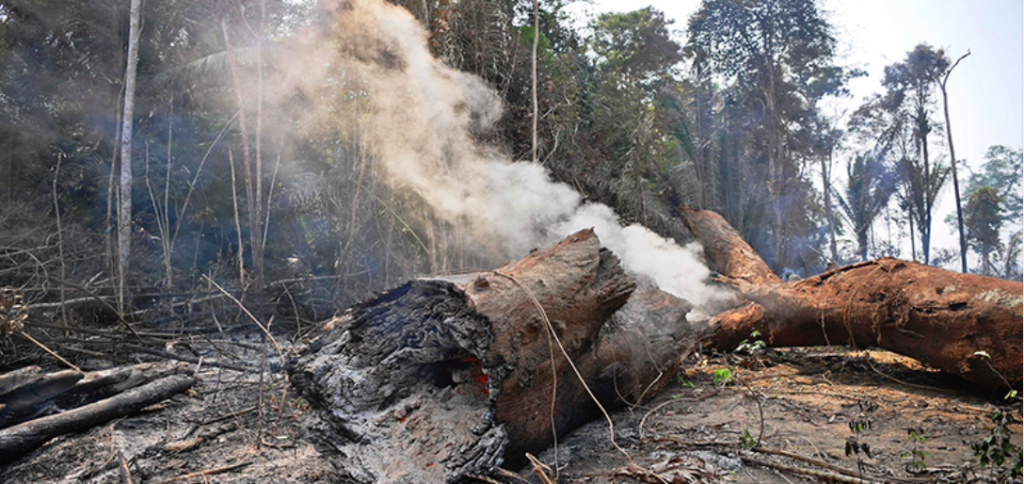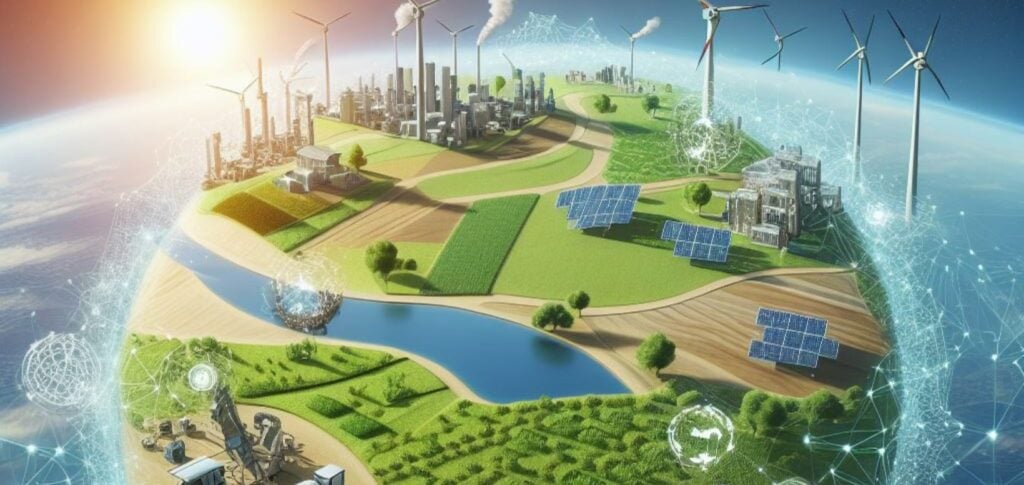🔥 Amazon has worst day of fires in 15 years, says Inpe
The current fire season in the Amazon recorded a negative record on Monday (22): 3.358 fires within 24 hours.
ADVERTISING
It is the worst mark in 15 years, according to data from the National Institute for Space Research (Inpe).
Considering the Inpe database – before what was verified this week – the most recent date to record a record number of fires was September 30, 2007, when the satellite that monitors the region caught 3.936 fires in 24 hourssystem. (G1)
The new record reached on Monday (23) represents almost triple what was recorded on the so-called “Day of Fire”.
ADVERTISING
On Fire Day – an emblematic date in the history of the biome's destruction, on August 10, 2019 – farmers in Pará organized criminal activities to cause illegal fires in several parts of the region. In total, 1.173 outbreaks were registered.
“There is no evidence that the fires on Monday (23) were coordinated,” Alberto Setzer, fire monitoring coordinator at Inpe, told AFP. However, experts attribute the fires in the Amazon to farmers, ranchers and land grabbers, who deforest and burn trees illegally.
This Thursday (25), a black smoke covered the sky of the city of Porto Velho, in Rondônia. The phenomenon has already occurred in other capitals and is pointed out by scholars as an effect of the fires.
ADVERTISING
🌱 Japanese automakers are the most exposed to climate risks, says study
Of all the automakers in the world, the Japanese Toyota, Honda and Nissan are the most exposed to the risks associated with climate change. This is what a study by the NGO Greenpeace published this Friday (26) says. Floods and hurricanes/typhoons, high temperatures, forest fires and drought are threat factors.
Toyota – number one in the sector in the world – is the most affected, as more than 90% of production plants would be highly exposed to at least one physical risk resulting from climate change.
Honda and Nissan occupy second and third position, respectively, followed by the American General Motors, the South Korean Hyundai and the American Ford.
ADVERTISING
In the global ranking of the top ten, European manufacturers (Daimler, Stellantis, Renault and Volkswagen) are the least exposed to climate risks.
Japan suffers most
The overexposure of Japanese groups is not surprising, as they have many factories in places where typhoons, for example, are frequent.
In August, Toyota and Honda also had to suspend production in some Chinese provinces due to the strong temperatures that hit the country and which caused power cuts.
ADVERTISING
In its report, Greenpeace insists in the case of Toyota, which must be more transparent about the climate risks to which its factories are exposed and “take stronger measures to reduce its carbon emissions”, according to the NGO.
“Toyota has solid experience” in managing its operations in the event of disasters linked to climate change, earthquakes and fires, said the Japanese group in an email sent to AFP, this Friday (26).
“As it is impossible to predict when, where and what type of catastrophe will occur in each country and region”, Toyota believes that it is “more important” to create a global system at the group level to minimize damage and cooperate as soon as possible with its suppliers, “more than revealing the level of climate risk” faced by its automakers in each of the countries in which the group is established.
🌊 Deadlock on the high seas
Two weeks of negotiations on a treaty to protect biodiversity in the high seas are nearing completion, but are still subject to political impasses.
After 15 years – including 4 previous formal sessions – negotiators have still not reached a legally binding agreement on the growing environmental and economic challenges of the high seas, an area that covers almost half the planet.
Many expected that this fifth session, which began on August 15 at the UN headquarters, was the last and produced a final text on “the conservation and sustainable use of marine biodiversity beyond national jurisdiction” (BBNJ).
the coalition High Ambition🇬🇧, which brings together 50 countries led by the European Union (EU), defended a broad agreement before the end of the year.
But, according to the environmental group Greenpeace, the negotiations are on the verge of collapse due to the “greed” of coalition countries and others, such as Canada and the United States.
One of the most sensitive issues is the distribution of possible benefits obtained from the development of genetic resources in international waters, where pharmaceutical, chemical and cosmetic companies hope to find medicines, products or cures.
Such costly marine research is largely the prerogative of wealthy nations, but developing countries do not want to be left out of the potential profits from marine resources that belong to no one.
A draft text, published a few days ago, appeared to side with developing countries, proposing a redistribution requirement of 2% of all future sales.
But since then there has been “a huge backlash”, said Will McCallum of Greenpeace, who accuses the EU of rejecting the proposal.
“It’s not real money. It's just hypothetical money. That’s why it’s really frustrating,” he told AFP.
The EU rejects the accusation. “We are ready to contribute to the agreement with various sources of financing, which in our opinion will include a fair sharing of the benefits of the world's marine genetic resources,” a European negotiator told AFP.
(With AFP)
Curto Verde is a daily summary of what you need to know about the environment, sustainability and other topics linked to our survival and that of the planet.
(🚥): may require registration and/or signature
(🇬🇧): content in English
(*): content in other languages is translated by Google Tradutor



